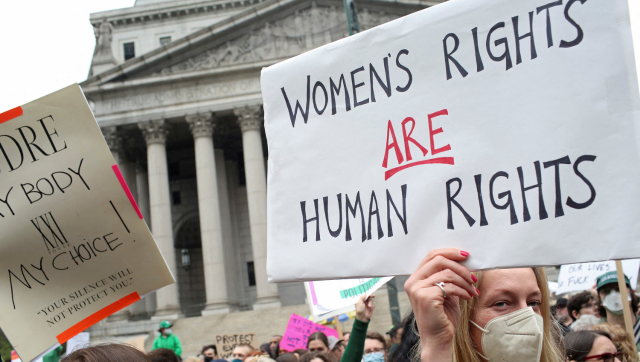In a recent study published in JAMA Internal Medicine, researchers from Planned Parenthood, Resound Research for Reproductive Health, and various US academic institutions estimated tens of thousands of pregnancies resulting from rape in states where abortion is not legally accessible. Utilising federal surveys on crime and sexual violence, the study suggests that approximately 520,000 rapes led to 64,565 pregnancies in the 14 states where abortion bans were enacted within the past four to 18 months. The research highlights a concerning trend, with fewer than 10 abortions reported monthly in these states, indicating limited access even when legal exceptions for rape exist. The medical journal’s editors emphasize the potential devastating consequences of restricting abortion access for rape survivors, urging a closer examination of the practical challenges faced by victims. Despite public opinion, where nearly 70% of adults support legal abortion in cases of rape, the study suggests that implementing such exceptions presents complex challenges. Dr. Sami Heywood, an ob/gyn in Illinois, warns that while exceptions may seem reasonable in theory, they can lead to additional trauma and danger for victims. Experts point out that survivors of rape may face difficulties in accessing abortion due to various factors, including delayed recognition of pregnancy, limited options for medication abortion, and potential dangers associated with disclosing their history. Dr. Rachel Perry from the University of California, Irvine, underscores the unique challenges faced by victims, emphasizing the ethical concerns surrounding medical practices that require proof of a crime. Dr. Samuel Dickman, medical director of Planned Parenthood of Montana and lead author of the study, acknowledges the statistical assumptions and challenges in measuring sexual assault occurrences. However, he stresses the importance of raising awareness about the impact of abortion bans and exceptions on those affected, challenging preconceived notions about the magnitude of the issue. The study sheds light on Idaho, one of the five states with a legal exception for rape within abortion bans. The estimates suggest 1,436 pregnancies resulting from rape within the 16 months since the law’s implementation, emphasizing the gravity of the situation where abortion access is entirely restricted. Dickman questions the acceptability of any number of pregnancies resulting from rape in a state with zero abortion access, highlighting the urgency of addressing the broader implications of such laws. The study aims to initiate a conversation about the often-underappreciated consequences of abortion restrictions and exceptions, urging a more compassionate and informed approach to reproductive health care.
US: Research finds over 64,000 pregnancies occurred from rape in states with abortion ban
FP Staff
• January 25, 2024, 17:10:27 IST
Utilising federal surveys on crime and sexual violence, the study suggests that approximately 520,000 rapes led to 64,565 pregnancies in the 14 states where abortion bans were enacted within the past four to 18 months
Advertisement
)
End of Article